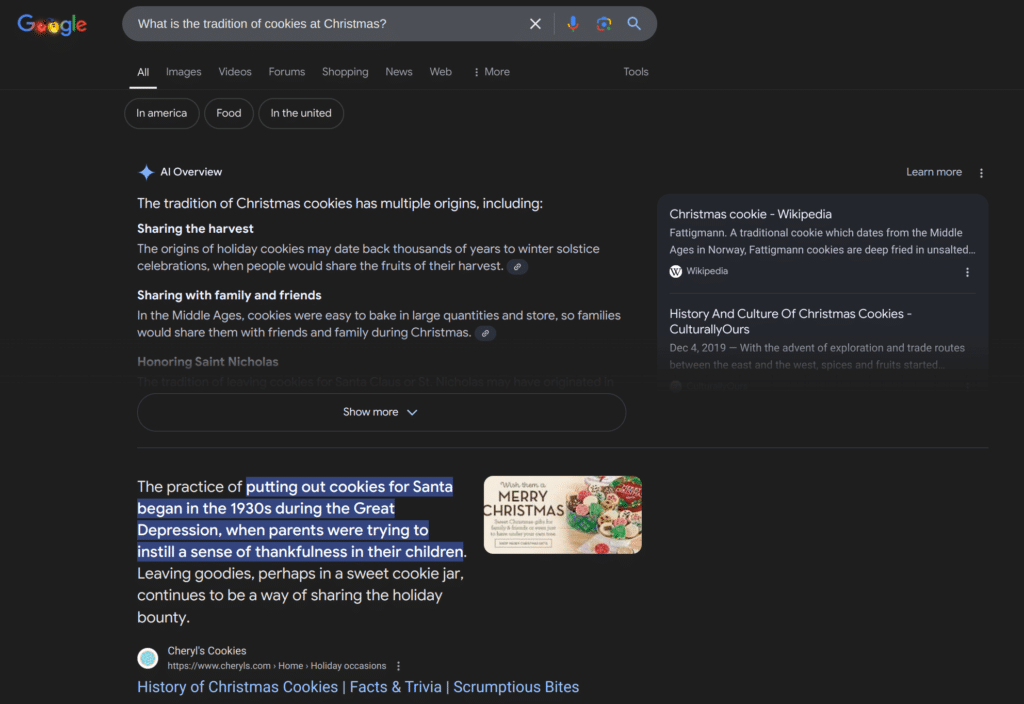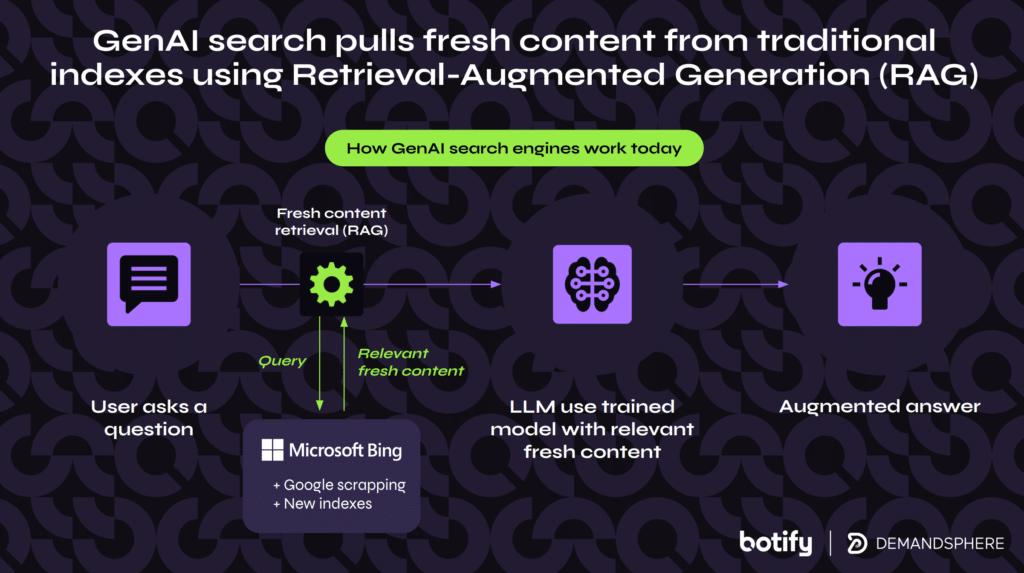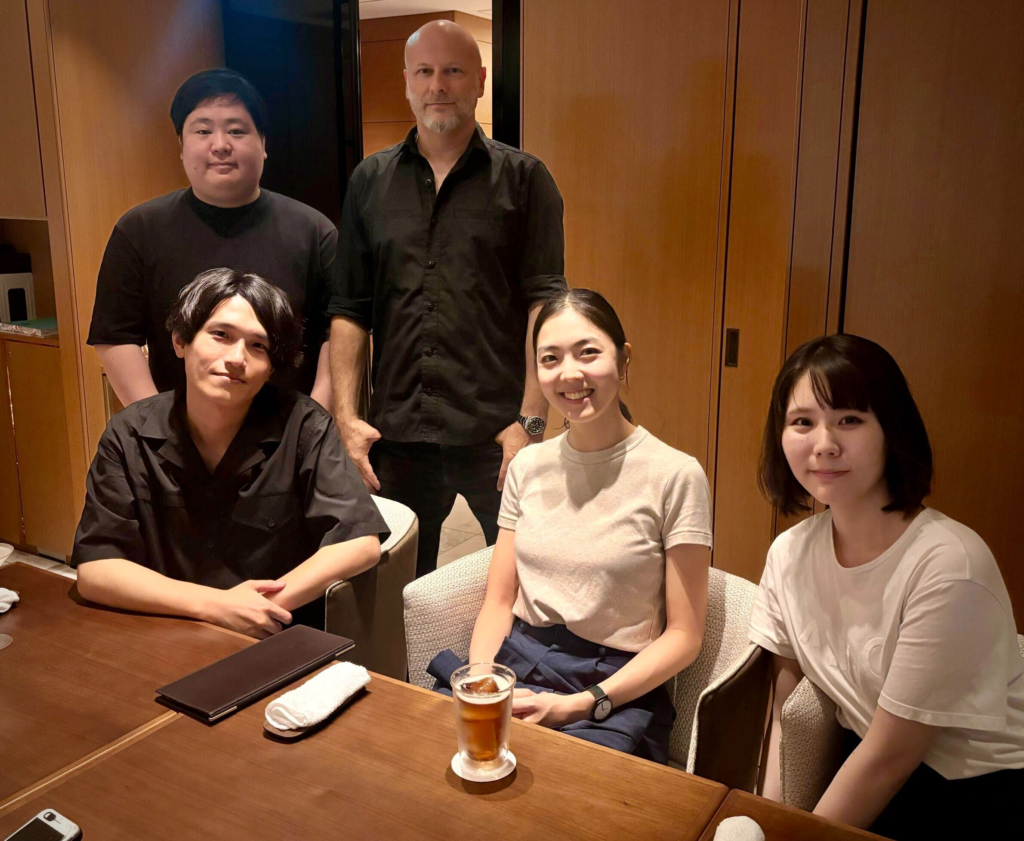2024 has been quite the year in search innovations, not only from Google, but from a whole host of players, including (Bing, at the heart of it all), OpenAI, Perplexity, and others.

Just around two years ago, LLMs entered the mainstream and the search and SEO world initially reacted with trepidation. There is a lot more optimism now about the bright future in search but also a growing recognition that we all need to continue to move quickly and adapt.
The biggest problem in LLM-based AI, from a user perspective, is how do you know whether or not the results you’ve been given are accurate?
There are (primarily) two ways in which an LLM can be wrong: obsolete or outdated information, and what everybody knows as hallucination.
As it turns out, the current best way to solve both of these problems is an architecture that emerged rapidly with the proliferation of LLMs, known as Retrieval Augmented Generation (RAG).
In a RAG system, you have two sources to pull from: 1) your foundational model (GPT-4o, for example) and 2) some external source, such as a database (vector or otherwise) or, in the case of search engines, as we will see, an organic search index and ranking system.
This architecture allows one to get the best of both worlds: chat-based summarization / research automation from the LLM interface and real-time, up to date, previously vetted information from databases and search indexes.

What Google, Bing, and all of the other AI search products have built is a RAG system for their audience and most of 2024 has been all about testing and improving on these systems in product. So, when someone is talking about AI search engines, this is what they are referring to.
Google initially launched their version of AI summarization last year and called it SGE. It was only available to users who were logged in and had enabled search labs.
In May of 2024, they took what they had learned and launched AI Overviews to the public, no longer requiring a login to see them. (SGE still exists behind the login wall).
The other players in this space, including Bing with their Copilot product, use the same basic architecture.
This will continue to evolve as we will move from the basic chat-to-get-results style of interface to fully integrated AI summarization and curation directly in the context of the functionality in question, whether it is a booking calendar, shopping cart, code editor, music player, and anything else you can imagine.
This will be combined with the next generation of AI innovation, which we are going to hear a lot about next year, which is all about agents. We will see agents and agentic search behavior become a very important topic to master in the coming years and it is going to transform everything.
At DemandSphere, we have been very busy in addressing these topics and evolving our platform to meet the needs of our in-house and agency customers. We are proud that we have delivered some of the fastest innovations in the market over the last 18 months and we’re just getting started.
We are proud to have formed partnerships with Botify, JADE, and BigCommerce.
As we near the end of this year, we will be providing our thoughts on the big trends to pay attention to 2025.
For the time being, I wanted to share these few thoughts to summarize the state of the market and provide links to some of our talks from FOUND Tokyo, Botify Connect, brightonSEO, Search Engine Journal, and others.

At Botify Connect, in Paris, France and Austin, Texas, I joined Elliot Haines and Tim Resnik on stage to provide actionable steps on optimizing for AI Overviews in Google and how to begin preparing for other AI search engines.
I spoke about this topic (and visual SERP analytics) at brightonSEO this year, both in the UK in April and in San Diego in November. My latest slides can be found here, where I addressed the question of “Going beyond ‘what happened’ in SERP analytics.”

brightonSEO in San Diego was particularly amazing. If you are wondering if you should go, do not hesitate.
We were also very happy that our partners from Japan, JADE, could join us. They have an amazing product called Amethyst that you should check out as well.

In December, Tim Resnick and I again joined forces to present our study of 120,000 SERPs, in which we analyzed exactly how AI Overviews function in the wild and practical steps that SEO teams can take to ensure visibility.
We were also proud to sponsor and attend Tech SEO Connect, in Raleigh, NC. This was one of the best events we have attended and the vibe was amazing. You should definitely attend this event too, if you can, in 2025.
Coming up, in Tokyo, on December 18, we will be hosting our year-end party. If you’re in town and in the SEO world, be sure to sign up as space is limited and it’s filling up quickly!
We have even more exciting news about events and partnerships in 2025, so stay tuned.
On the product side, we have launched many new features, including our revamped Keyword & SERP Research tools (still in beta though), AI Overview Explorer, enhancements to our SERP Feature Explorer, SERP Rewind upgrade, and direct integration with Google’s Gemini models to generate embeddings for content and calculate Cosine Similarity in content analytics.
We’ll be talking more about these too as we wrap up the year and talk about what to expect next year.
